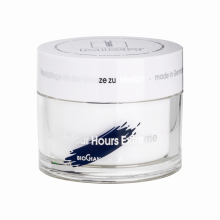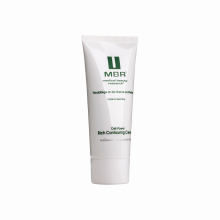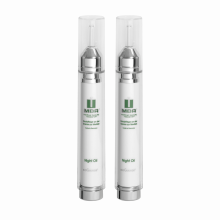Rejuvenate skin with Vitamins & Minerals
The good health of every organ in the body is dependent on vitamins and minerals; the skin is one of those organs. Vitamin and mineral deficiencies can be particularly harmful to the skin and can result in accelerated aging or skin disease. In the developed world it is unusual to find severe vitamin or mineral deficiency. Minor mineral and vitamin deficiencies are surprisingly common. A successful skin rejuvenation program requires a sufficient intake of vitamins and minerals. This doesn’t mean that you should take massive amounts of vitamin/mineral supplements. In most instances, mega doses are not beneficial. As a matter of fact, excessively high doses of some vitamins and minerals can actually be toxic. You need to read the labels on vitamin supplements carefully and make sure that you do not exceed the safe levels. In the sections below we will look at the various vitamins and minerals that are good for the health of your skin.
Vitamin B complex
B complex generally is used in reference to a group of vitamins that include thiamine (B1); riboflavin (B2); niacin (B3); pantothenate (B5), pyridoxine (B6), cyanocobalamin (B12), and folate (B9).
Products with niacin
B1 and B2 are vital for the production of energy in cells. Low levels of B1 and B2 can lead to certain forms of dermatitis (as well as other issues). Low-level deficiencies generally go undetected but can still produce some skin damage. People who eat a
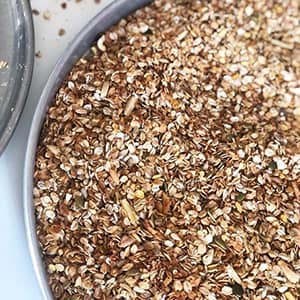 diet that is heavy on processed grains are particularly vulnerable to vitamin B1 and B2 deficiencies. Several years ago, the US government told food manufacturers that they should add B1 and B2 supplements to goods produced with white flour. This helped to alleviate the more serious deficiencies. Low-level deficiency still does happen, particularly in people who eat a lot of potatoes and processed grain products. A balanced diet with some low-level supplements is a good idea. High levels of B1 or B2 don’t have any additional benefits.
diet that is heavy on processed grains are particularly vulnerable to vitamin B1 and B2 deficiencies. Several years ago, the US government told food manufacturers that they should add B1 and B2 supplements to goods produced with white flour. This helped to alleviate the more serious deficiencies. Low-level deficiency still does happen, particularly in people who eat a lot of potatoes and processed grain products. A balanced diet with some low-level supplements is a good idea. High levels of B1 or B2 don’t have any additional benefits.Cyanocobalamin (vitamin B12) is very important for the smooth running of several of the synthetic processes in cells. A deficiency of B12 is particularly harmful to the neurons of cells that divide rapidly, including skin cells. Low-level B12 deficiencies are often undiagnosed as they don’t produce any particularly noticeable symptoms. One of the most noticeable and sometimes the only signs of B12 deficiency is depression. B12 is a rather unique vitamin as it is the only one that is found only in animal by-products including meat, fish, eggs, dairy, and poultry. Despite the popular myth, there is no active form of B12 found in fermented soy products or algae like spirulina. This means that vegans are at a greater risk of B12 deficiency than anyone who consumed a balanced diet that includes either dairy or meat products. In order to absorb B12 into the system there is a special protein that must be produced by the stomach in sufficient quantities. It is not uncommon for older people to not produce enough of this enzyme due to mild atrophy of the stomach glands. Other reasons for problems with the absorption of B12 into the system include autoimmune and digestive conditions. If the problems with B12 originate with absorption issues then they are not correctable by supplements or dietary change. In these instances, B12 has to be taken via injection or nasal spray. Unlike most of the other B vitamins, B12 taken in higher than required doses can provide additional health benefits.
Vitamin B9 (folate) is a part of several of the same biochemical reactions as B12. Like B12, it is particularly vital for cells that divide quickly, including the skin cells. Low-level deficiencies of B9 are often not detected. Like with B12, depression can often be the only symptom of a lack of B9. The best source of B9 is vegetables, in particular green leafy varieties as well as beans. The liver is the only animal product that has high levels of B9. B9 is easily broken down during cooking or long periods of storage. Eating large amounts of raw or lightly cooked vegetables is the best way to keep your B9 levels high. A diet lacking in fruit and vegetables can put you at severe risk for B9 deficiency. There are some over-the-counter and prescription drugs that can cause problems with the absorption rate of B9 and even cause a B9 deficiency.
Vitamin A and Skin Care
Skin cells depend on vitamin A as a key nutrient. A lack of vitamin A makes the skin dry to the touch, fragile, and wrinkled. Skincare treatments do not work when there is a deficiency of vitamin A. In the developing world, it is not uncommon to find serious levels of vitamin A deficiency which leads to a number of serious health issues. In developed nations, it is more common to find people with minor vitamin A deficiencies. Vitamin A is most commonly found in animal by-products including eggs, whole milk dairy products, and organ meats. The issue here is that these are all high in cholesterol and saturated fats. There are also vegetables like broccoli and carrots that can help with the supply of vitamin A. The body takes the carotenoids that are present in broccoli and carrots and turns it into vitamin A. Excessive vitamin A consumption can be toxic.
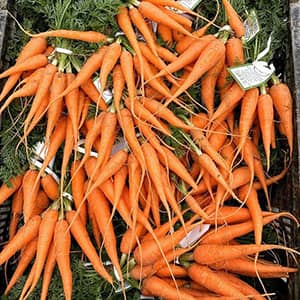

Iron, Copper and Vitamin C, and skincare
Copper, iron, and vitamin C are all key ingredients in the synthesis of collagen which is one of the main structural proteins in the skin. A lack of any of these nutrients can inhibit the skin’s ability to heal as well as lowering its level of resilience. Fresh vegetables and fruit are excellent sources of vitamin C. Copper is present in a number of different foods and is rarely lacking with the exception of people who are taking zinc supplements. Iron comes from meat products and whole grains.
Products containing copper ions
In summary
The majority of minerals and vitamins are important to maintain healthy skin but some are more important than others.

